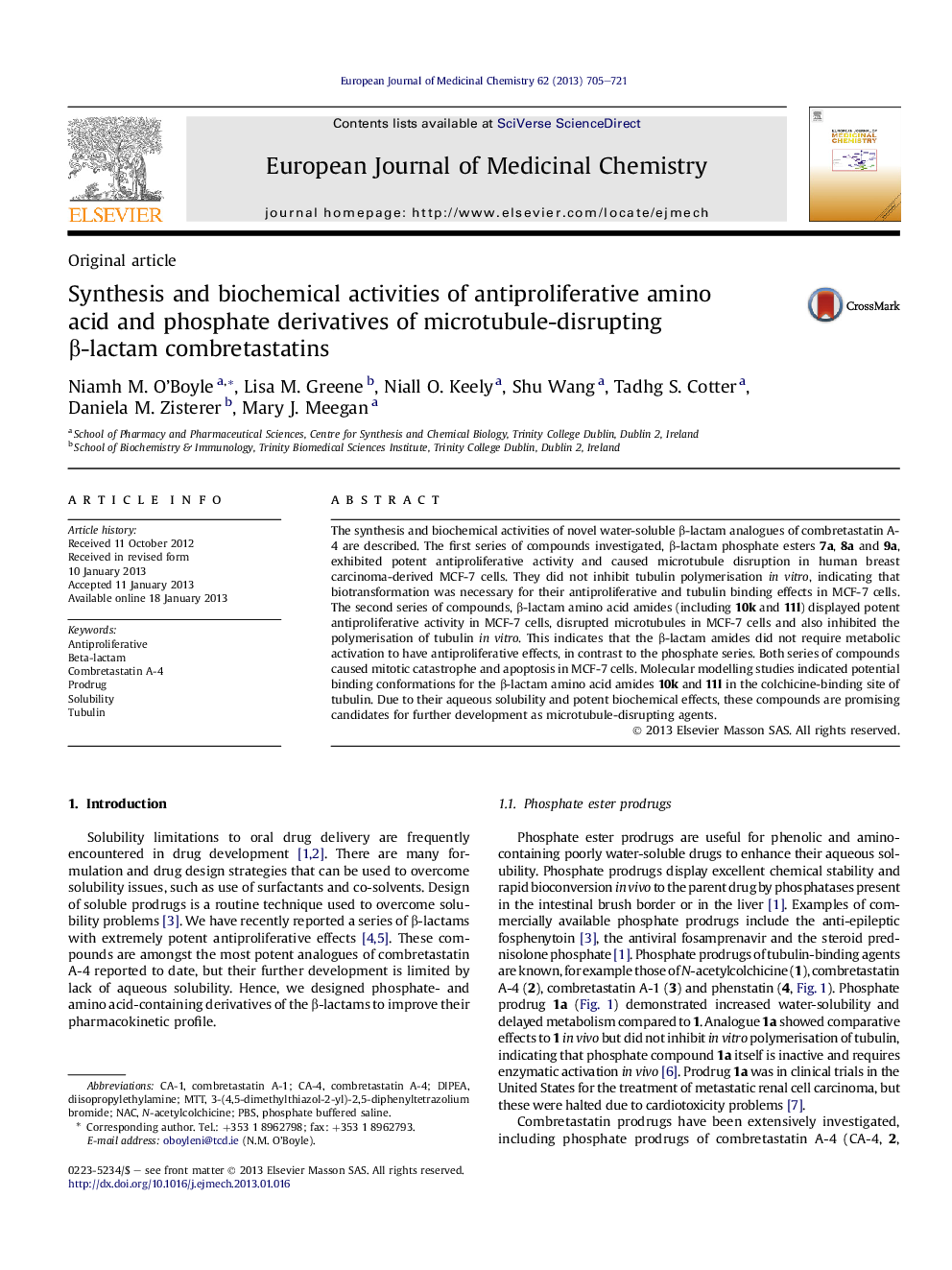| Article ID | Journal | Published Year | Pages | File Type |
|---|---|---|---|---|
| 1394340 | European Journal of Medicinal Chemistry | 2013 | 17 Pages |
The synthesis and biochemical activities of novel water-soluble β-lactam analogues of combretastatin A-4 are described. The first series of compounds investigated, β-lactam phosphate esters 7a, 8a and 9a, exhibited potent antiproliferative activity and caused microtubule disruption in human breast carcinoma-derived MCF-7 cells. They did not inhibit tubulin polymerisation in vitro, indicating that biotransformation was necessary for their antiproliferative and tubulin binding effects in MCF-7 cells. The second series of compounds, β-lactam amino acid amides (including 10k and 11l) displayed potent antiproliferative activity in MCF-7 cells, disrupted microtubules in MCF-7 cells and also inhibited the polymerisation of tubulin in vitro. This indicates that the β-lactam amides did not require metabolic activation to have antiproliferative effects, in contrast to the phosphate series. Both series of compounds caused mitotic catastrophe and apoptosis in MCF-7 cells. Molecular modelling studies indicated potential binding conformations for the β-lactam amino acid amides 10k and 11l in the colchicine-binding site of tubulin. Due to their aqueous solubility and potent biochemical effects, these compounds are promising candidates for further development as microtubule-disrupting agents.
Graphical abstractFigure optionsDownload full-size imageDownload as PowerPoint slideHighlights► Phosphate ester and amino acid amide derivatives of tubulin-binding β-lactams were synthesised. ► Aqueous solubility up to 0.45 mg/mL. ► Potent antiproliferative effects in MCF-7 breast cancer cells with nanomolar IC50 values. ► Amino acid derivatives inhibit tubulin polymerisation in vitro.
